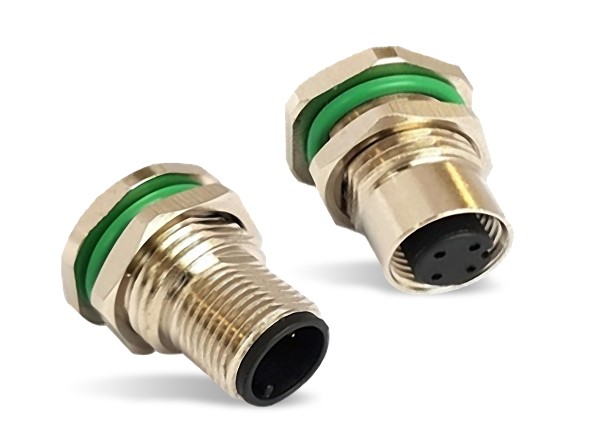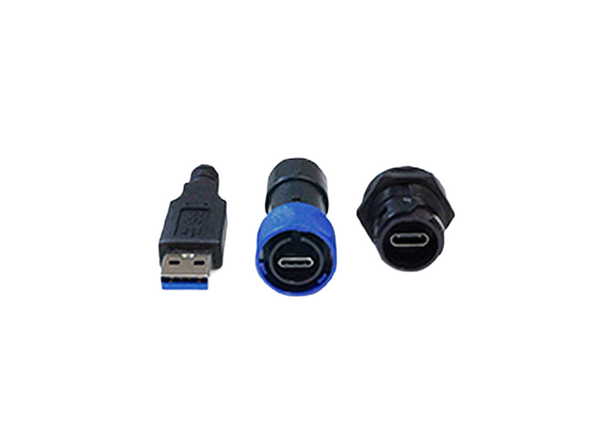Toughening up connectivity for ubiquitous electrification
New applications and the success of smart factories and infrastructures are raising demands for robust and reliable electrical interconnects and bringing additional requirements for special properties such as reduced weight and enhanced corrosion resistance. Mark Patrick, Mouser Electronics further explores.
Emerging trends – mature solution
Digital transformation and electrification are two powerful trends of the modern age, offering the prospects of sustainability combined with further improvements in living standards and quality of life. Digital transformation emphasises the importance of data-driven decision-making, driving enterprises to seek more extensive, accurate, precise, and often real-time data from their assets and processes. Industrial premises and equipment are becoming increasingly sensor rich, deploying sensors in new locations, and retrofitting sensors within existing infrastructure. Upgrades are creating a demand for extra sensing channels as well as driving more sensors into harsh environments that contain hazards such as humidity, dirt and dust, temperature extremes, vibrations, shocks, and the possibility of physical damage.
Similarly, the electrification trend is raising demand for signal and power interconnects in diverse applications such as microgenerators, e-bikes and scooters, electric-vehicle service equipment (chargers), and battery energy storage systems. Reliability is critical and so, too, are factors such as low weight and the ability to withstand environmental challenges such as corrosion.
On the other hand, demand for increasingly pervasive connectivity can extend installation time, add complexity, increase the risk of mis-wiring errors, and complicate maintenance. Where, in the past, simple wiring infrastructures may have called for small numbers of individual wired connections, today larger numbers of channels need to be connected quickly, efficiently, and accurately. In addition, they often need to be field installable and field maintainable.
M12 strengths and opportunities
Industry-standard circular connectors can deliver a solution for these demands. The circular connector format offers several strengths for demanding applications, including secure and reliable sealing with high IP ratings. Panel-mount versions can be installed easily with no special tooling required to create a suitable aperture. Also, the connector is easily secured using a back nut and can be removed without special tools.
The widely used and trusted M12 type, covered by the international standard IEC 61076-2-101, is a prime example. Different configurations containing various numbers of contacts (e.g., the Bulgin M12 Series (Figure 1) ranges from 3 to 17 contacts) are available in the standard 12mm diameter form factor. Coding ensures effective prevention of mis-wiring errors and the screw-locking mechanism both confirms and maintains full connectivity for all included channels.

Figure 1: Bulgin M12 Buccaneer Circular Connectors. (Source: Mouser Electronics)
M12 circular connectors are ideal for networking, data transmission, power delivery, and high-speed industrial Ethernet applications. Typically seen in factory automation, M12 connectors have seen a surge in demand within industries such as medical, security/sensing, automotive electrification (including electric vehicles), and renewable energy. Their compact design and robustness make them highly dependable for mission-critical applications.
Smarter and stronger
Today’s trends are increasing demand for connectors to withstand challenging environments, where designers are looking for additional special properties such as lightweight construction and corrosion resistance. These can be difficult to find among standardised parts. Bulgin’s field-installable M12 connectors are available with a robust aluminium coupling nut, making them a lightweight and durable alternative to the more common nickel-plated M12 nut variants. They provide a plug-and-play solution for upgrading sensor systems with M12 connectivity and can help designers achieve valuable weight savings in equipment such as wiring harnesses for e-mobility applications.
Standard M12 connectors are typically seen in IP67 environments, where the possibility of corrosion is minimal. All metal body connectors in the field-installable M12 family are made of nickel-plated brass. With their nickel-plated brass coupling nuts, they are a viable alternative to the M12 plastic body with aluminium locking ring.
However, a simple chemical treatment of the aluminium coupling nut, used on the plastic body configurations, permits these connectors to be utilised in environments where corrosion is a possibility. Anodised silver treatments have been used to treat coupling locking rings for these types of environments.
Among topical use cases for these robust circular connectors, e-bikes can impose harsh environmental, electrical, and mechanical stresses. Sealing the power and data connections is essential to allow use in rainy weather and to withstand water splashes and dust ingress. Corrosion-resistant materials allow connections to tolerate conditions that cause condensation inside and outside the connector. There can also be surges such as inrush currents during motor start-up or regenerative braking. Vibrations and mechanical shocks are also expected.
Solar generators and solar farms also need the mechanical strength and resistance to water and dust ingress that circular connectors can provide. Cables connecting solar panels can experience flexing and bending during installation, and movement due to cycles of thermal expansion and contraction, that benefit from the connectors’ locking mechanism.
Similarly, the ability to withstand outdoor environments and harsh weather conditions can be critical in remotely installed equipment such as smart meters and weather-monitoring stations. Proper sealing, rugged construction, and corrosion-resistant materials help preserve the integrity of signal and power connections.
On the other hand, wiring for industrial automation, such as Ethernet and Profinet connections, not only demands mechanical security and electrical integrity but also benefits from built-in coding available with Bulgin M12s that helps ensure error-free on-site installation while minimising downtime.
In addition to the M12 size, Bulgin’s Buccaneer Circular Connector family also contains M5, M8, M16, and M23 sizes, available in straight or right-angled field attachable configurations with over-moulded cable. Sealing options include IP67, IP68, and IP69K standards that protect against dust, water, and high-pressure jets. They are available with power contacts rated up to 8A/250V, as well as hybrid power-and-signal configurations. Bulgin Data Buccaneer Connectors are also available, for Ethernet, USB (Figure 2), and SMB applications. Another alternative would be to use a rectangular type, although this may jeopardise IP ratings and other features such as spacing.

Figure 2: Bulgin 4000 C-Type Series USB Buccaneer Cables. (Source: Mouser Electronics)
Commonly used in applications that require rugged and reliable connectivity, circular Buccaneer connectors are suitable for factory automation, process control, robotics, and industrial machinery, as well as outdoor lighting systems, renewable energy installations, marine equipment, smart agriculture equipment, and transportation and e-mobility applications. Their resistance to sterilisation processes also means they are often chosen for use in medical devices.
Conclusion
Circular connectors are an effective response to demands for the seamless integration of disparate sensors and equipment. They facilitate robust and reliable data transmission when interconnecting diverse devices such as temperature sensors, pressure gauges, vibration sensors, flow meters, and motor controls. Their use can ensure compatibility across different generations of equipment while maintaining reliable connectivity within the factory environment.
The flexibility offered by industry-standard circular connectors such as the M12 type contributes to the broad diversity of wired and wireless sensors, as well as legacy equipment, employed in modern factories. These connectors continue to evolve with the progression of electrification and digital transformation, offering improvements such as reduced weight and increased corrosion resistance, leveraging developments such as the optional aluminium coupling nut for the plastic body connector types.










